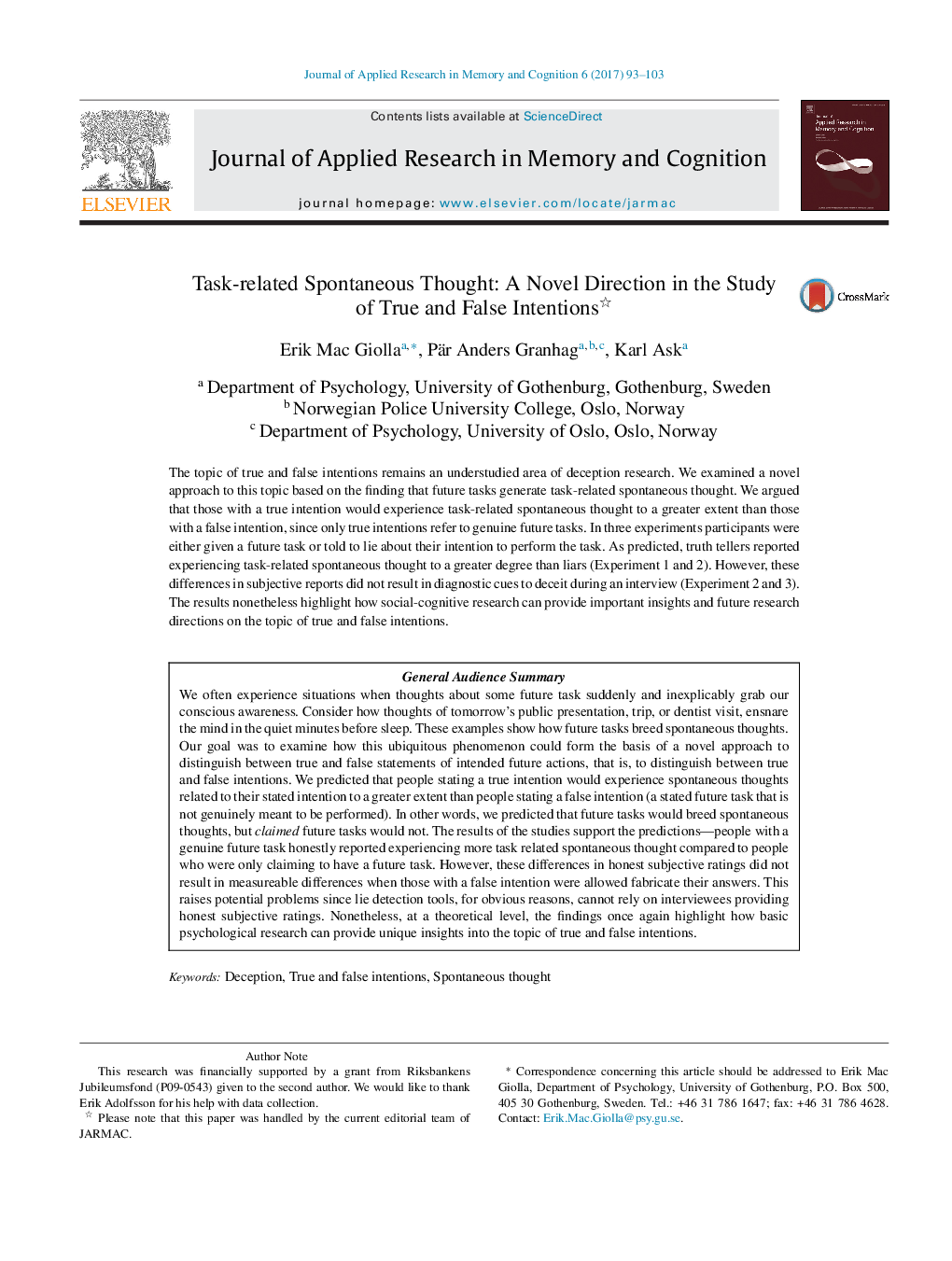| Article ID | Journal | Published Year | Pages | File Type |
|---|---|---|---|---|
| 5034011 | Journal of Applied Research in Memory and Cognition | 2017 | 11 Pages |
The topic of true and false intentions remains an understudied area of deception research. We examined a novel approach to this topic based on the finding that future tasks generate task-related spontaneous thought. We argued that those with a true intention would experience task-related spontaneous thought to a greater extent than those with a false intention, since only true intentions refer to genuine future tasks. In three experiments participants were either given a future task or told to lie about their intention to perform the task. As predicted, truth tellers reported experiencing task-related spontaneous thought to a greater degree than liars (Experiment 1 and 2). However, these differences in subjective reports did not result in diagnostic cues to deceit during an interview (Experiment 2 and 3). The results nonetheless highlight how social-cognitive research can provide important insights and future research directions on the topic of true and false intentions.
